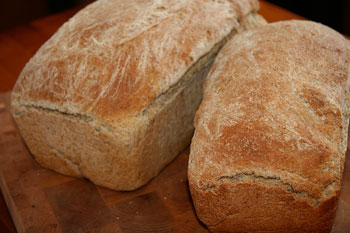by Megan Rohrer
Since 2002 I’ve been the executive director of Welcome, a non-profit organization that serves the homeless and hungry in San Francisco. So when I think about giving, it would be easy to talk about the hundreds of thousands of meals I’ve cooked, the more than five and a half tons of produce we’ve given away at our community garden, or the hundred prescription eye glasses we’ve distributed this year. And as Christmas fast approaches, I imagine that when most of us think about giving, we likely think about giving something tangible to another person.
But, lately I’ve been remembering the time I was on a “street retreat” and spent seven days and nights sleeping on the streets to listen to and feel in my bones the lessons that come from the aches and pains earned sleeping on the cold sidewalk.
Fear
One night I was in a sleeping bag outside the church, and I began to become afraid.
While I have a black belt in karate, and am well known as a pastor in the neighborhood and I’m very street smart, it occurred to me that when I was in a sleeping bag it was like my arms and legs were tied to my sides. My fear got bigger.
My mind continued to get the best of me. I began to think about all the terrible things that could happen to people who are female at night when they are alone. Attempting to calm my fears, I pulled the hood of the sleeping bag over my head and convinced myself that with my head covered no one could tell I was female bodied.
Then as I started to slip off into sleep, I remember the homeless folk who had been set on fire while they were sleeping. I thought about all the senseless violence that happens to the homeless on cold nights like this. To prevent fear from overtaking me, I convinced myself that I would be fine as long as nothing touched me.
Somehow I managed to fall asleep. . . until something touched me.
In my sleeping bag I debated if it would be better to reveal myself and hope they recognized me or if that would be worse because they would discover I was female bodied. I decided to ignore it and hope whatever it was went away.
But, it touched me again.
Slowly I peeked my head out of the sleeping bag and found a man with wild eyes and crazy hair, who began laughing at me. He said, “Pastor Megan, I scared ya, didn’t I?” It was Dominic, one of the homeless who regularly frequented my meal programs. Dominic played professional quality blues piano and guitar whenever he was in the church.
Dominic was putting a blanket on top of my sleeping bag and seemed to have a bit of a tear in his eye as he said, “You’ve given me blankets so many times and finally I get to give one to you.”
I felt more like a pastor in that moment than I have at any worship experience, baptism, wedding or funeral. I had been so busy giving that I hadn’t made it possible for others to give to me.
Don’t worry, I’m not recommending that you or others sleep on the streets in order to have a more faithful understanding of giving. But, I do believe that in order to truly give to others we need to become vulnerable enough to receive as often as we give.
Shift giving
 If you are brave and have understanding friends and family, you could declare that in order to deepen your faith you will not be giving any Christmas presents. You can say you will only receive them—as a way to gain a deeper understanding about giving. However, it might be more socially appropriate to simply shift how you think about giving.
If you are brave and have understanding friends and family, you could declare that in order to deepen your faith you will not be giving any Christmas presents. You can say you will only receive them—as a way to gain a deeper understanding about giving. However, it might be more socially appropriate to simply shift how you think about giving.
In the Jewish tradition, giving is thought of as a mitzvah. This Hebrew word is more than a commandment to support, serve and seek justice for our neighbors–it is also a mindset. Because giving helps the giver fulfill a religious obligation, the mitzvah doer is blessed by being able to give. While some politicians may feel like individuals who receive food stamps or general assistance are receiving handouts or taking money from hard working individuals, if we have a mitzvah mindset, it would be considered a blessing to our community for everyone who pays taxes is able to give to the poor.
Early Christians had a similar idea about giving alms to the poor during Lent. On Maundy Thursday when we remember Jesus’ commandment to wash each others’ feet, we try to express the interconnectedness between giving and receiving blessings.
Daily bread
 Martin Luther tried to decrease the emphasis on almsgiving during Lent, because he thought everyone should have the food, clothing and housing they needed. He didn’t want to act out a ritual that depended on others living in poverty. Luther used his concerns to help develop the modern welfare system, while also providing new ways for people to give to those in need.
Martin Luther tried to decrease the emphasis on almsgiving during Lent, because he thought everyone should have the food, clothing and housing they needed. He didn’t want to act out a ritual that depended on others living in poverty. Luther used his concerns to help develop the modern welfare system, while also providing new ways for people to give to those in need.
Luther had everyone who came to church bring a loaf of bread. Before the service the best loaf of the day was chosen and it was used as communion and the person who brought it felt honored their bread was chosen. After the service everyone took a loaf of bread with them, either to eat it themselves and fulfill their communal prayers for daily bread, or to give to those who were hungry that they encountered on their way home.
Recently, a dinner roll company called me to tell me that they had large amounts of seconds that they wanted to donate to Welcome. Now, each Sunday at St. Francis Lutheran, we feed between 150 and 200 San Franciscans breakfast. The leftover bread is also for members to take home–and continue Luther’s tradition of sharing actual daily bread.
This Christmas season, I encourage you to find ways to make giving and receiving a part of your spiritual practice. Imagine those you are giving to as givers of a much bigger gift to you. Find ways to share your abundance and, if possible, find ways to fulfill your prayers and the prayers of others in your congregation before worship ends. And if you can, allow yourself to be vulnerable enough to receive as much as you give.
Pastor Megan Rohrer has served as the executive director of Welcome since June of 2002. Megan has a Masters of Divinity from the Pacific School of Religion in Berkeley, Calif. Rostered by both the ELCA and the Episcopal Diocese of California, Megan is called by Santa Maria y Martha, herchurch, and St. Francis Lutheran and St. Aidan’s Episcopal. Megan received an honorary doctorate for community service from Palo Alto University. August 19, 2012, was named “Pastor Megan Rohrer Day” by the San Francisco Board of Supervisors, and in February Megan will receive an honorable mention as an Unsung Hero of Compassion by His Holiness the Dalai Lama.


She is quite an example for us all !